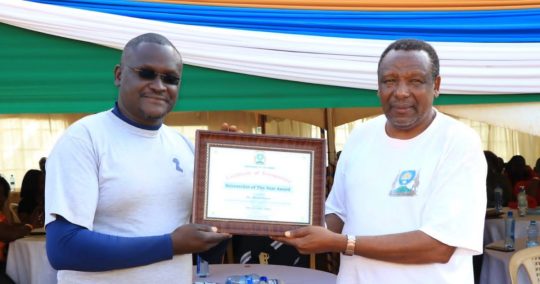
University Lecturer Wins Sh106 Million Research Grant for Pollinator Study
Dr. Mark Otieno, a senior lecturer at the University of Embu, has secured research grants totaling Sh106 million from the German Research Foundation.
The grants are aimed at investigating the functional complementary relationship between nocturnal and diurnal pollinators along a land-use gradient in the Taita Hills biodiversity hotspots in Kenya.
The research will align with the United Nations Sustainable Development Goals (SDGs) and the Kenya Vision 2030, which aim to promote biodiversity.
The study will also inform policy and agricultural practices that promote sustainable development and protect biodiversity globally.
University of Embu Vice Chancellor, Daniel Mugendi, congratulated Dr. Otieno and highlighted that the research would inform sustainable agricultural practices that support biodiversity and food security.
Mugendi further explained that the study would be fundamental in the realization of Kenya’s vision 2030 towards environmentally sustainable development.
The research project will be implemented by a panel of researchers from the University of Embu, spearheaded by Dr. Otieno, and the University of Wuerzburg in Germany, represented by Prof. Ingolf Steffan-Dewenter and Dr. Marcell Peters.
The project will run for three years, starting in May 2023, and will leverage the expertise and experience of the German team members in spatial ecology, plant-pollinator interactions, tropical agroecosystems, crop pollination, montane biodiversity, ecology, organismic traits, and ecosystem functions.
Dr. Otieno, the Director of Research and Extension at the University of Embu, believes that the research will have a significant impact on food security in Africa by increasing the number of pollinators, which is crucial for the reproduction of many plant species.
He holds a PHD in Agroecology from the University of Reading (UK), a Master of Science in Animal Ecology, and a Bachelor of Education (Science degree in Biology) from Kenyatta University.
After his PHD, he joined the Alexander von Humboldt Foundation as a research fellow, where he studied the influence of landscape and field-scale factors on pollinator and pest natural enemy communities and pollination, pest control, and gene flow in field beans in Lower Franconia, Germany.
University Lecturer Wins Sh106 Million Research Grant for Pollinator Study


